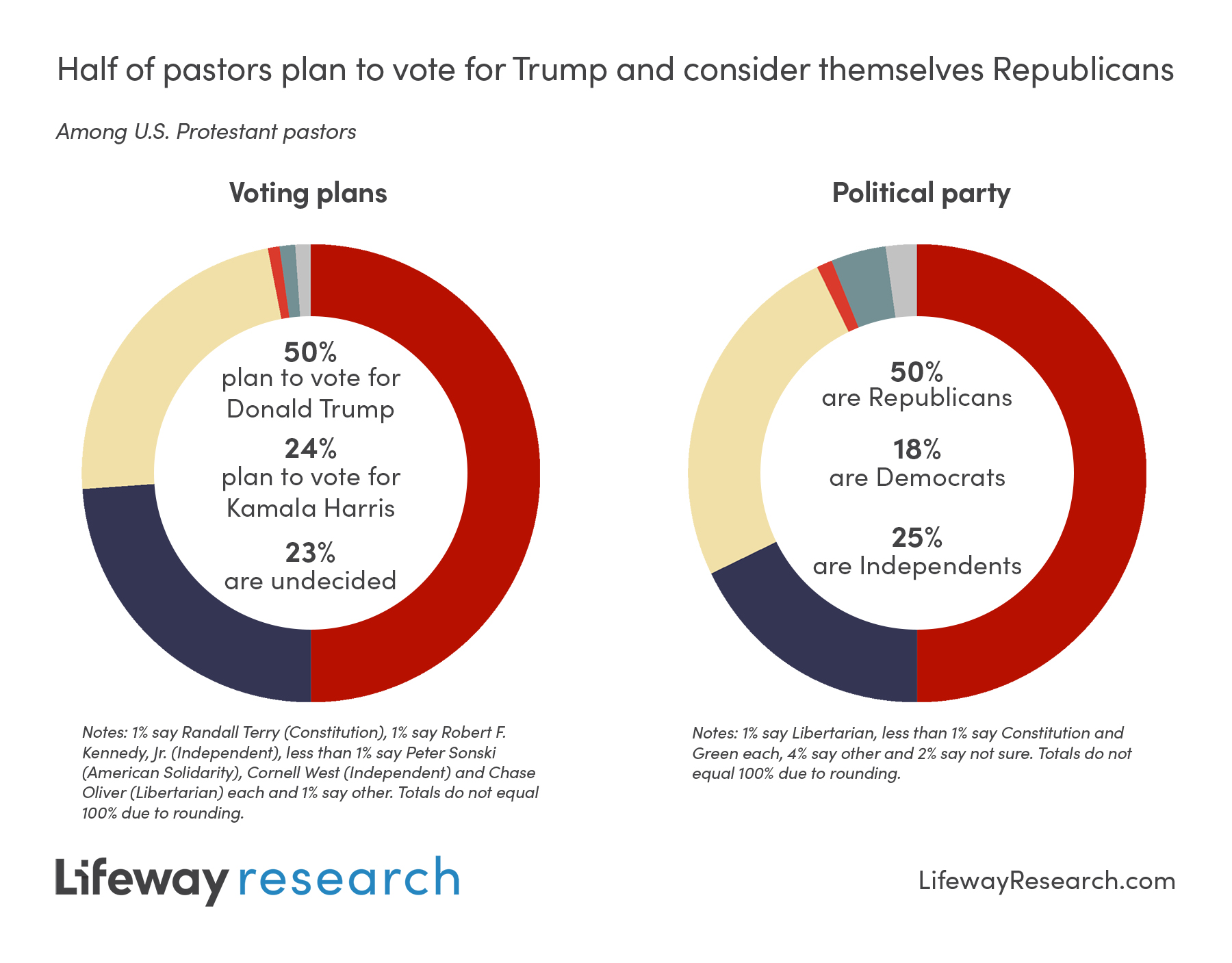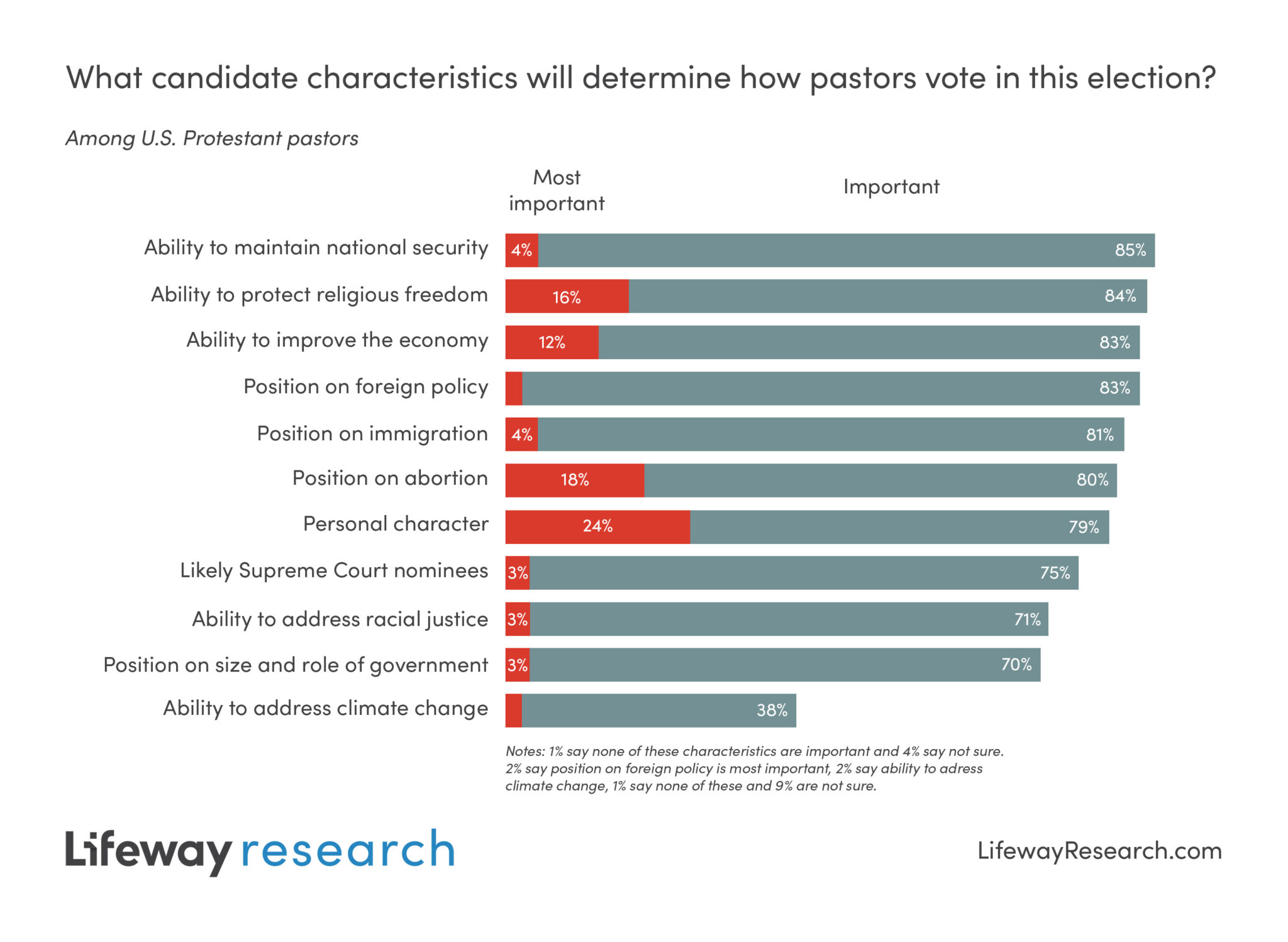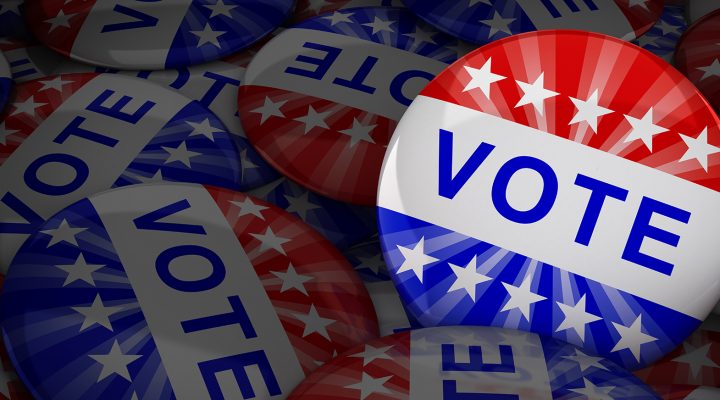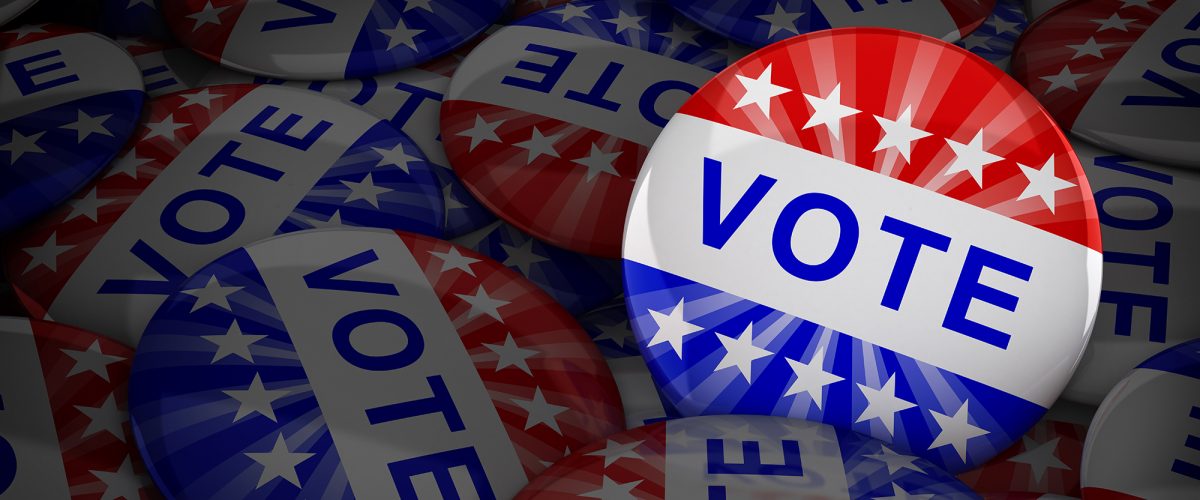More than in recent years, some U.S. Protestant pastors appear reluctant to tell pollsters who they will vote for in the November presidential race.
But among those who are willing to talk, 50% say they plan to vote for Donald Trump, while 24% back Kamala Harris. That’s according to new national polling by Lifeway Research, an affiliate of the Southern Baptist Convention’s publishing house.
In a break with recent election-year patterns, 23% of pastors told Lifeway they are undecided or did not wish to reveal their presidential pick. That’s up significantly from 4% in 2020 and 3% in 2016.
Whether these pastors are mum because their vote might differ from the majority view in their congregations or because they are genuinely undecided was not clear. Nationally, as few as 3% of all voters are considered truly undecided this election year, a much lower share than in previous years. However, pollsters report some additional percentage of voters could change their minds before election day.

Scott McConnell
“We ask pastors about many things going on in the culture today and they are willing to provide their opinion. However, the growing number of pastors unwilling to respond with their voting intentions shows how sensitive or divisive politics has become in some churches,” said Scott McConnell, executive director of Lifeway Research.
That could make sense for obvious reasons, he added: “Denominational groups often lean one way politically, but pastors must minister alongside many clergy who don’t share their political views. The same is true within their own congregations. In a culture that increasingly doesn’t want to tolerate people with different political views, pastors lead churches that strive for unity centered on their faith.”

Still, one trend holds true, McConnell said: “Out of all the descriptors of pastors, their own political party preference is the best predictor of how they will vote.”
Among Republican pastors, 78% support Trump. Among Democratic pastors, 85% back Harris.
The type of church a pastor serves also corelates with their intended presidential vote, Lifeway found.
Self-identified “evangelical” pastors are more likely to say they’ll vote for Trump (61%), compared to 50% of Mainline Protestant pastors who say they’ll vote for Harris. Lifeway found African-American pastors are among the most likely to say they’ll vote for Harris (71%) and among the least likely to back Trump (5%).
Also, pastors under 45 are among the least likely to support Trump (41%).
Based on denominational labels, those most likely to support Trump include Pentecostals (65%), Baptists (64%), nondenominationals (64%), Restorationist movement (55%) and Lutheran pastors (48%).
On the other hand, Methodist (52%) and Presbyterian/Reformed pastors (44%) are among the most likely to choose Harris.

While for decades, evangelicals in particular and Christian pastors in general have preached that character matters in a presidential candidate, that belief no longer holds as much sway in the age of Trump.
Lifeway gave poll respondents a list of 11 characteristics in a candidate to rank. When forced to choose the most important factor, only 24% said personal character. While representing a fourth of Protestant pastors, personal character ranked above any other single quality: 18% chose the candidate’s position on abortion, 16% the ability to protect religious freedom, and 12% the ability to improve the economy. Every other issue ranked as the top priority of 4% or fewer pastors.
When not forced to choose a single priority, 79% of surveyed pastors said personal character matters in a presidential candidate.
Speaking more generally, 85% of pastors said they want a candidate who can maintain national security, and 84% want a candidate who will protect religious freedom (84%) and match their views on foreign policy.
Other traits high on the general list include improving the economy (83%), sharing a position on immigration (81%), and sharing a position on abortion (80%).
Protestant pastors may be among the most likely Americans to vote: 97% told Lifeway they intend to cast a ballot this November. In 2020, about two-thirds of all registered voters nationwide cast ballots in the election.
As for party affiliation, Lifeway found the stereotype that all evangelicals are Republicans doesn’t fully stand up. It is true that evangelical pastors (64%) are more likely to be Republicans than Mainline pastors (30%). But still, only 8% of evangelical pastors said they are Democrats.
Nationwide, 50% of all Protestant pastors say they consider themselves part of the Republican Party and 18% say they are Democrats. The other 25% say they’re independents.


